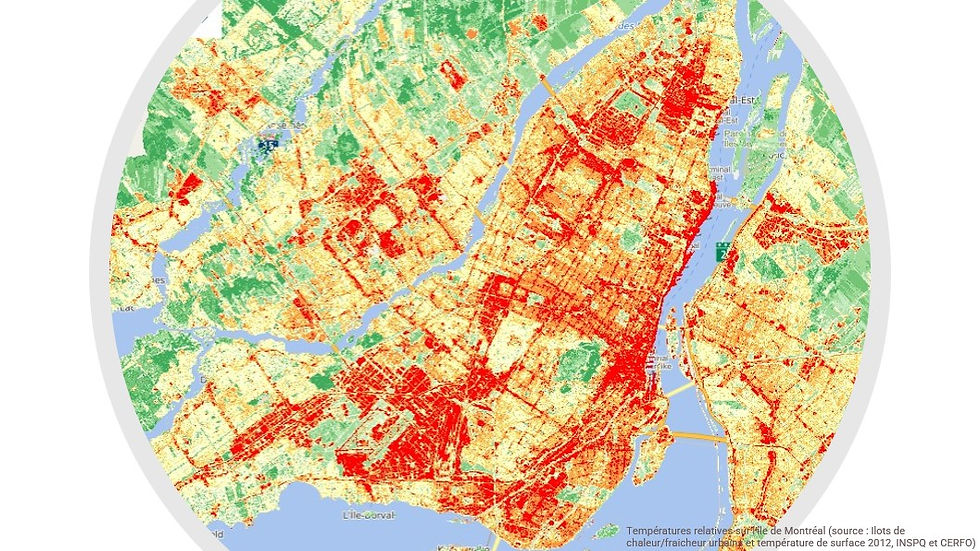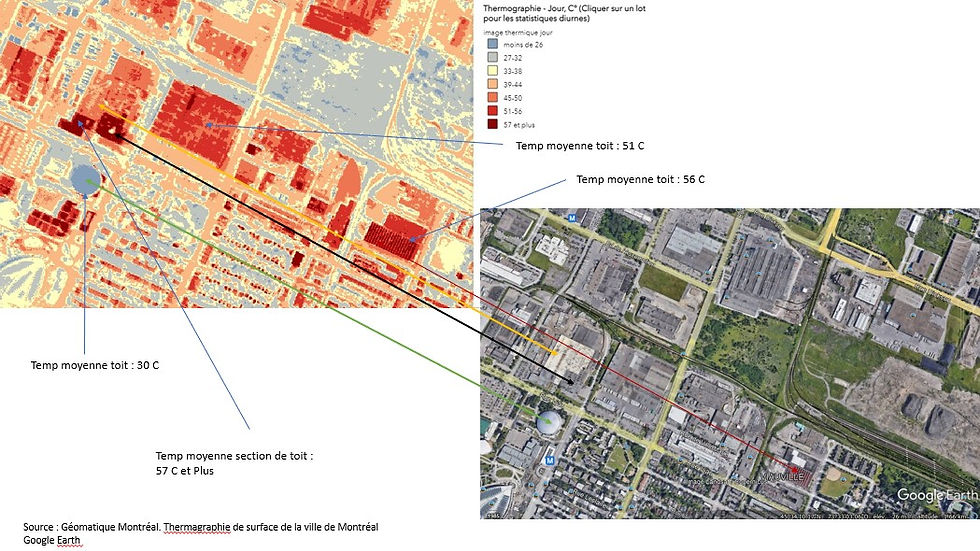


RespiR
In the context of climate change and like major cities around the world, the Montréal agglomeration is also highly exposed to episodes of oppressive heat.
Over the decades, oppressive heat events have registered ever-increasing frequencies and levels of intensity. The impacts of these events on the health of the population, particularly those at risk, have been clearly demonstrated.
The cartography, presented above, carried out jointly by the INSPQ (National Institute of Public Health of Quebec) and the CERFO, shows the territories very highly exposed to high temperatures during heat waves.
Our study focuses on the determination of priority areas and measures allowing potentially reduce the presence of heat islands for the well-being of local populations.
WHAT
Reduction of heat islands
WHERE
Montreal
WHEN
In progress
